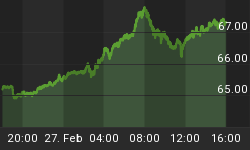Mr. Bernanke has to know in the face of (among many other things):
-
Washington's political gridlock, lack of political will to change that, and a system that promotes 'advantage to political donors';
-
loss of American manufacturing jobs;
-
American structural unemployment - being an environment where workers either are not trained for available jobs, or are geographically dislocated from them;
-
what appears to be a current downturn in the U.S. economy, in the face of all prior and 'ongoing soft' quantitative easing to date;
-
that the oft-spoken and reported idea that 'Americans are the best innovators' and 'that will in the end ensure America will be the continuing reigning world economic power for decades to come' is a myth;
-
that technological innovation broadly speaking results in replacement of jobs with mechanized solutions to productivity, and hence is 'worker unfriendly' - meaning Main Street America unfriendly; and,
-
the Eurozone is a deep and escalating world economic problem
that a continued strategy of 'more quantitative easing' can't restore America's economy to what it was (or latterly 'appeared to be') prior to 2008.
Notwithstanding, for some months now I have said in these Newsletters that QE3 (which is really a misnomer because QE has never really stopped in its various forms since 2008) can be expected in 2012. It looks like the 'time may be coming nigh'.
If this week Mr. Bernanke makes an announcement of QE3, or fails to make an announcement of QE3, watch the reaction of the financial markets carefully. It is highly likely they will respond positively if he does, and negatively if he doesn't. This means the financial markets are, in the short term, detached from value fundamentals - or so I think - and that the game of musical chairs continues.
Context: If one assumes ongoing quantitative easing will not result in meaningful long-term economic recovery, long-term 'investment markets' ought not to respond positively to it.
Topical Reference: Jobless rate pressures Fed toward providing more stimulus, from The Globe and Mail, July 29, 2012 - reading time 3 minutes.















